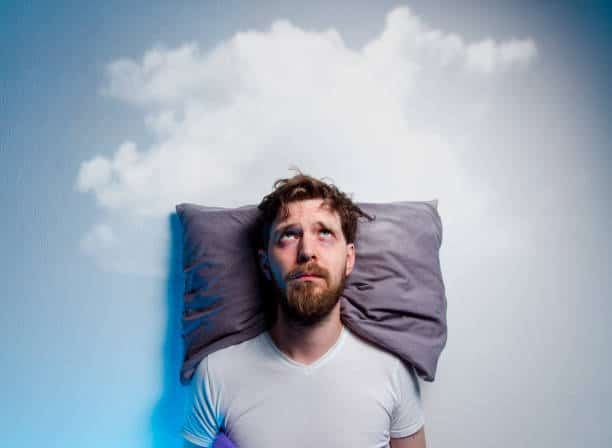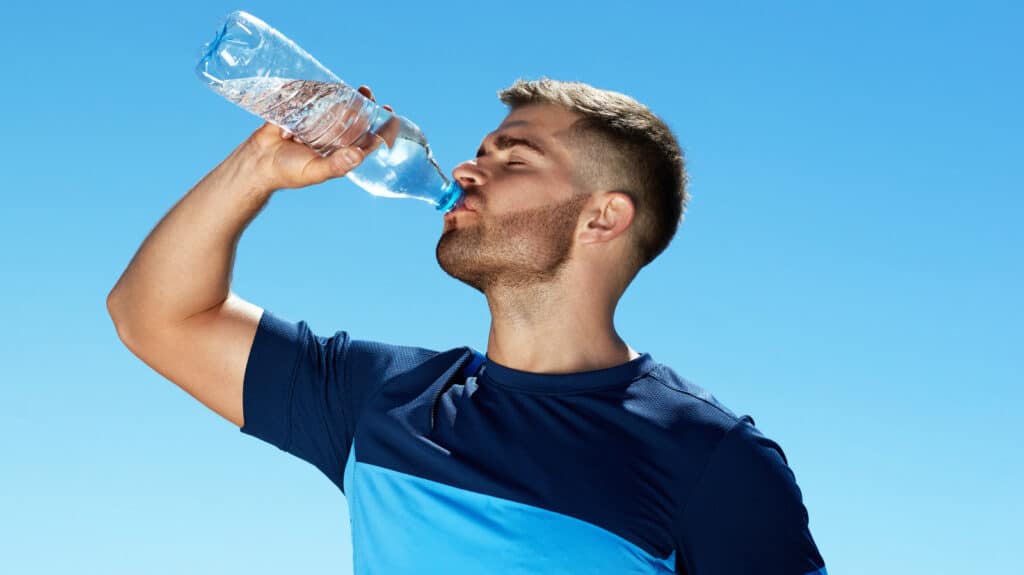Sleep Talk Blog, Sleep Issues, Health & Wellbeing
Exercising To Beat Primary Insomnia - Does It Work?
Table of Contents
You might be wondering how walking and pumping iron could possibly help with those sleepless nights. After all, insomnia can feel like an insurmountable challenge.
But here's something interesting - recent research exploring the connection between insomnia and physical activity has unveiled some truly fascinating possibilities that might just help you get that restful night's sleep you've been dreaming of.
We've long understood that there's a powerful relationship between sleep and exercise. It's well-documented that regular physical activity can enhance both the quality and quantity of your sleep.
However, if you're battling with insomnia, you'll know that sleeplessness can throw quite a spanner in the works of your daily routine, making it feel like nothing will help.
In this comprehensive guide, we'll delve deep into whether exercise could be your secret weapon against primary insomnia, exploring the most effective activities that might help you finally get the rest you deserve.
Let's dive right in and discover how movement might be the key to better sleep!
First things first - it's crucial to understand what primary insomnia is and why it stands apart from other sleep issues.
Primary insomnia is unique because it occurs without any underlying medical condition. Unlike other forms of sleeplessness, your sleep difficulties can't be traced back to any specific health issue or environmental factors that might be disrupting your rest.
When you're dealing with primary insomnia, you'll find yourself struggling in one of three ways: you might have trouble falling asleep initially, experience difficulty staying asleep throughout the night, or wake up feeling unrefreshed, despite having spent adequate time in bed.
What makes primary insomnia challenging

What makes primary insomnia particularly challenging is that it often requires extensive investigation to treat effectively. Unlike other sleep disorders, there's no single medicine or therapy that's consistently proven successful in treating it. This can leave you feeling frustrated and searching for alternatives.
Exercise, however, has shown remarkable promise. We know it works wonders for improving sleep quality in people without sleep issues - but could it be the answer you've been searching for? Could regular physical activity help you overcome primary insomnia?
Rather than focusing on individual research papers, let's look at the bigger picture through meta-analyses - comprehensive reviews that combine multiple studies to give us the most reliable conclusions about what the science really tells us.
A fascinating meta-analysis examining how exercise affects primary insomnia revealed something quite remarkable - physical activity had a significant positive impact on sleep quality across all age groups. This wasn't just a small improvement; the benefits were substantial and consistent.
Another comprehensive review of randomised controlled trials - the gold standard in medical research - found that exercise can make a real difference in three key areas: sleep quality, the severity of insomnia symptoms, and how sleepy you feel during the day.
Interestingly, when researchers looked specifically at middle-aged women, they found that while exercise improved overall sleep quality, it didn't necessarily help with all aspects of insomnia. The findings suggested that physical activity was particularly good at helping women maintain sleep throughout the night, even if it didn't make falling asleep easier initially.
The benefits extend beyond primary insomnia too. Studies looking at sleep quality in people with conditions like Parkinson's disease have shown positive results from exercise. Similarly, a controlled trial examining how yoga and aerobic exercise affected sleep in women with type 2 diabetes found significant improvements in sleep quality.
Walking, in particular, has shown promising results. It can help reduce the time it takes to fall asleep and increase how long you stay asleep, especially if you're new to exercise. A detailed study focusing on young adults discovered that regular walking had a marked positive impact on sleep quality, as measured by the respected Pittsburgh Sleep Quality Index (PSQI).
When it comes to strength training, there's some fascinating science at work. Weight lifting enhances the production of adenosine triphosphate (ATP), a molecule that carries energy in your body. As ATP levels decrease after exercise, it converts to adenosine, which naturally promotes drowsiness and could help you drift off to sleep. The key is timing - aim to finish your workout about two hours before bedtime for the best results.
Recent research has also uncovered a strong correlation between muscle-strengthening exercises and improved sleep quality. People who regularly engage in strength training consistently report better sleep patterns.
And don't underestimate the power of yoga. While it might be considered low-intensity cardio, scientific evidence suggests it can be surprisingly effective at combating primary insomnia.
Could excercise help beat primary insomnia

Let's explore what the research tells us about yoga's impact on sleep. Several compelling studies have demonstrated that yoga can significantly enhance sleep efficiency and reduce insomnia symptoms in women.
The gentle movements and mindful breathing appear to have a particularly calming effect on the nervous system. What's more, recent research has shown promising results for older adults, with participants reporting marked improvements in their overall sleep quality.
When it comes to Pilates, whilst early studies suggest it could be beneficial for sleep, we must acknowledge that the research is still in its early stages, with relatively small sample sizes. However, if we broaden our perspective to include any form of low-intensity exercise, there's robust evidence supporting its positive impact on sleep quality.
The connection between exercise and insomnia is quite fascinating - regular physical activity has been consistently linked to reduced insomnia symptoms and better sleep patterns. But here's the interesting bit - if you're already quite active and still struggling with insomnia, simply doing more exercise might not be the answer.
Instead, you might want to try mixing up your routine with different types of activities. On the flip side, if you're currently inactive, introducing regular exercise could be a game-changer for your sleep quality. Why not give it a try?

